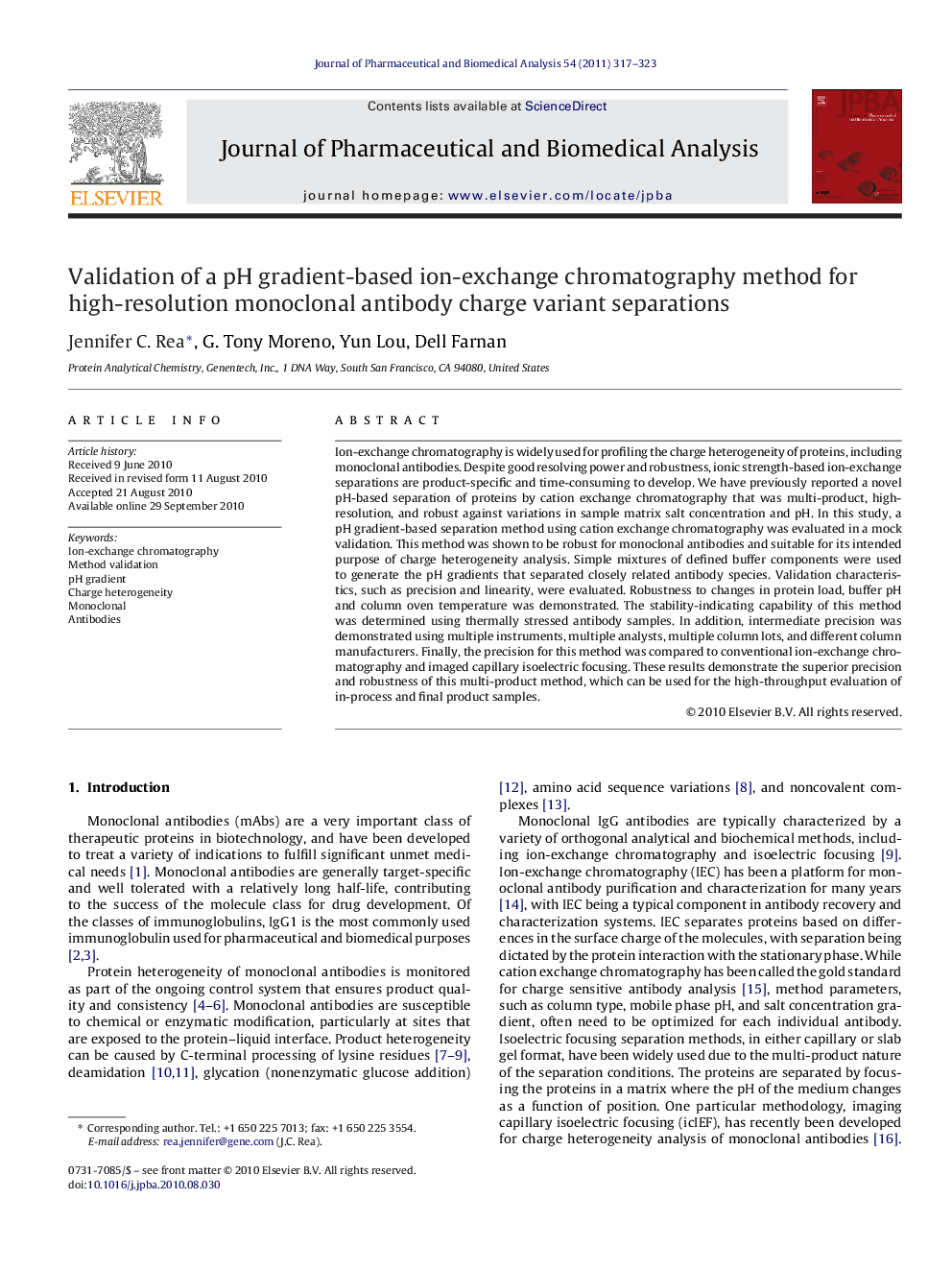| Article ID | Journal | Published Year | Pages | File Type |
|---|---|---|---|---|
| 1223073 | Journal of Pharmaceutical and Biomedical Analysis | 2011 | 7 Pages |
Ion-exchange chromatography is widely used for profiling the charge heterogeneity of proteins, including monoclonal antibodies. Despite good resolving power and robustness, ionic strength-based ion-exchange separations are product-specific and time-consuming to develop. We have previously reported a novel pH-based separation of proteins by cation exchange chromatography that was multi-product, high-resolution, and robust against variations in sample matrix salt concentration and pH. In this study, a pH gradient-based separation method using cation exchange chromatography was evaluated in a mock validation. This method was shown to be robust for monoclonal antibodies and suitable for its intended purpose of charge heterogeneity analysis. Simple mixtures of defined buffer components were used to generate the pH gradients that separated closely related antibody species. Validation characteristics, such as precision and linearity, were evaluated. Robustness to changes in protein load, buffer pH and column oven temperature was demonstrated. The stability-indicating capability of this method was determined using thermally stressed antibody samples. In addition, intermediate precision was demonstrated using multiple instruments, multiple analysts, multiple column lots, and different column manufacturers. Finally, the precision for this method was compared to conventional ion-exchange chromatography and imaged capillary isoelectric focusing. These results demonstrate the superior precision and robustness of this multi-product method, which can be used for the high-throughput evaluation of in-process and final product samples.
